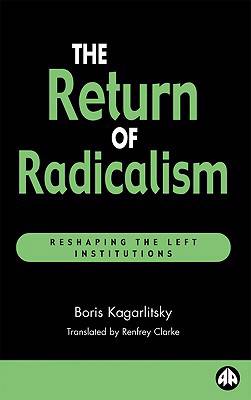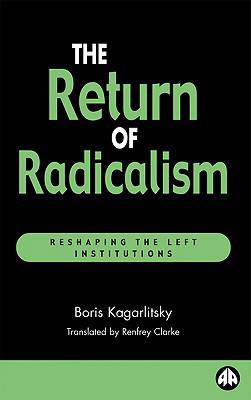
- Afhalen na 1 uur in een winkel met voorraad
- Gratis thuislevering in België vanaf € 30
- Ruim aanbod met 7 miljoen producten
- Afhalen na 1 uur in een winkel met voorraad
- Gratis thuislevering in België vanaf € 30
- Ruim aanbod met 7 miljoen producten
Zoeken
The Return of Radicalism: Reshaping the Left Institutions
Boris Kagarlitsky
€ 175,95
+ 351 punten
Uitvoering
Omschrijving
The rise of neo-liberalism has had a devastating impact on the institutions and organisations with which the left has traditionally been associated. In the final volume in the Recasting Marxism trilogy, Boris Kagarlitsky examines this crisis and explores areas of opportunity for the left. He begins by focusing on the decline of trade unions in the West and the attempts to revive them, contrasting this with the rapid growth of unions in the nations of the developing world and the new industrial countries. He argues that trade unionism has a vital role to play in the twenty-first century.Kagarlitsky then provides a critique of the post-modernist left, arguing that the experiences of Eastern Europe and of the Third World demonstrate the vital need for a universal left as the only viable alternative to the emerging 'new barbarism'. The state of the contemporary left is explored, with an assessment of the contributions of the 'third left' and 'third socialism' and the new wave of left parties and movements, such as the German Party of Democratic Socialism, the Workers' Party in Brazil, and the Zapatistas in Mexico.
Specificaties
Betrokkenen
- Auteur(s):
- Uitgeverij:
Inhoud
- Aantal bladzijden:
- 192
- Taal:
- Engels
- Reeks:
Eigenschappen
- Productcode (EAN):
- 9780745315966
- Verschijningsdatum:
- 20/03/2000
- Uitvoering:
- Hardcover
- Formaat:
- Genaaid
- Afmetingen:
- 135 mm x 216 mm
- Gewicht:
- 399 g

Alleen bij Standaard Boekhandel
+ 351 punten op je klantenkaart van Standaard Boekhandel
Beoordelingen
We publiceren alleen reviews die voldoen aan de voorwaarden voor reviews. Bekijk onze voorwaarden voor reviews.











